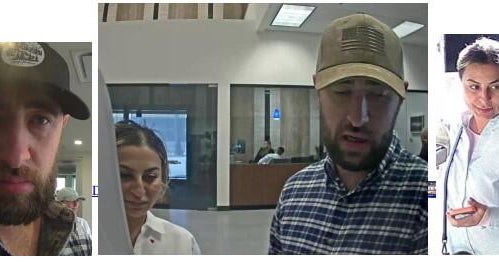Elderly Identify Theft: Why Older Americans Are Becoming A Growing Target
In 2013, there were 16,993 reported instances of identity theft crimes that were committed against people 70 years and older. Unfortunately, because identity theft against seniors often goes unnoticed or unreported, the true numbers are probably much higher. Why is this, and what can be done about it?
A Targeted Population
Seniors are often specifically targeted as victims of identity theft. Sometimes it's because this is seen as a vulnerable, trusting population from whom it is easy to get information. Other times, it's because this demographic has assets worth acquiring.
Elderly people are often duped into giving out personal information by people pretending to represent a legitimate establishment, such as a bank or a charity. Criminals may send an official-looking letter, make a phone call or send an email, soliciting financial details or account numbers. Because the requests appear to be in good standing, the seniors willingly provide the very information that thieves need for their crimes.
Additionally, the people responsible for helping seniors may be the very ones who commit identity crimes. Personal caregivers who spend one-on-one time with a senior may have ready access to confidential documents, such as bank statements and medical bills. Additionally, employees in a long-term care facility may have access to the personal records of many seniors.
Steps to Prevent Identity Theft
Stolen Social Security cards and Medicare cards are a common source from which criminals can gather personal information. Leave both at home. In your wallet, carry a copy of your Medicare card with all but the last four digits blacked out.
Credit reports should be checked frequently. All citizens are entitled to a free report from each of the national credit reporting agencies each year. Keeping an eye on these can alert you to problems before they spiral out of control.
Finally, it's okay to ask for help. Worried that they'll be perceived as incompetent, seniors are often embarrassed about identity theft issues. Family members need to support their elderly loved one, however, to prevent or deal with such situations. They can keep an eye on caregivers, assist in requesting annual credit reports and watch for signs of identity theft.
Identity theft can be a form of elder abuse. If it happens to you or someone you love, register a complaint with the Federal Trade Commission and seek help from the Department of Human Service's National Center on Elder Abuse.
Jessica Wasik lives in Pittsburgh where she works as a full-time figure skating coach sharing her passion with todays generation of young skaters. A graduate of Robert Morris University with a degree in English Studies, Jessica is also a contributing writer for AXS.com. Her work can be found at Examiner.com.
![]()
![]()
For more information, visit CBS San Francisco's Identity Theft section
![]()







